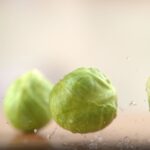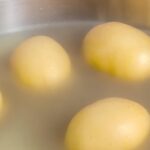The way we store our food is a critical aspect of maintaining its quality and ensuring it remains safe to consume. Proper food storage can significantly impact the taste, texture, and overall freshness of our food items. It also plays a vital role in preventing foodborne illnesses, which can occur when food is not stored correctly.
This is particularly true for fresh produce, which can quickly deteriorate if not stored under the right conditions. Among the various types of produce, baby carrots often spark a debate when it comes to their storage.
They are perfect for a quick snack, a healthy addition to school lunches, a crunchy salad ingredient, or a colorful addition to a variety of dishes. However, their small size and peeled nature often leave consumers wondering about the best way to store them to maintain their freshness and crunch.
Is refrigeration necessary?
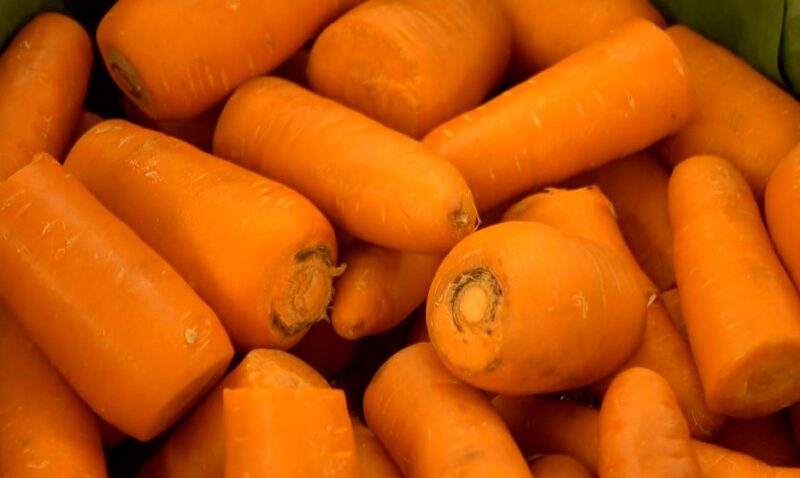
You do not have to refrigerate your baby carrots, but the way you store them affects their freshness and longevity. In the rest of the article we’ll focus on all the details you need to know in order to keep them safe and tasty for as long as possible.
Key features
Contrary to what their name might suggest, baby carrots are not young carrots harvested early. Instead, they are typically made from larger, mature carrots that have been cut and shaped into small, snack-sized pieces.
This process was invented by a farmer named Mike Yurosek in the 1980s as a way to make use of carrots that were too twisted or knobby to sell in their natural state. This ingenious solution not only reduced waste but also created a new, convenient product that quickly gained popularity.
While baby carrots share the same nutritional profile as their full-sized counterparts, they differ in a few key ways. For one, they’re peeled, which exposes their inner flesh and makes them more prone to drying out. This is a significant factor to consider when storing the vegetables, as it can affect their longevity.
They also have a slightly different texture and taste due to the removal of the outer skin, which some people prefer. The process of creating baby carrots also involves a water bath with a small amount of chlorine to kill any bacteria. This chlorine is then thoroughly rinsed off.
This step is necessary for food safety, but it can also affect the carrots’ storage needs. The moisture from the water bath can potentially lead to quicker spoilage if the carrots are not stored correctly.
Shelf life
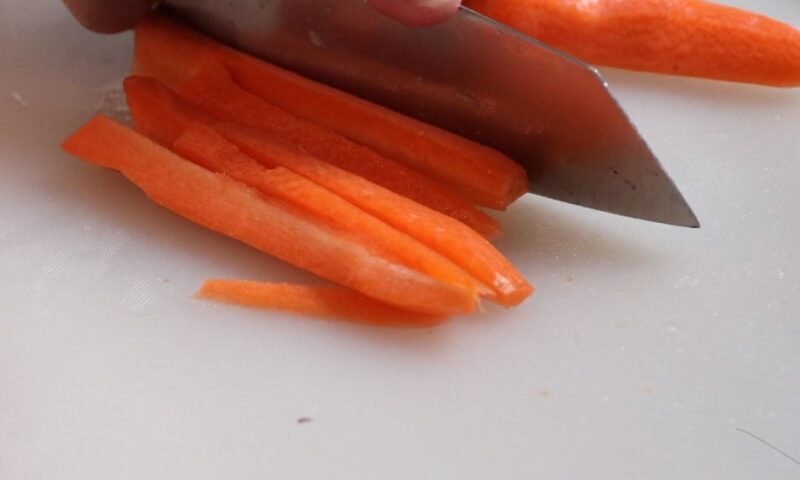
The shelf life of baby carrots can vary depending on several factors. Under optimal conditions, a bag of unopened vegetables can last up to three weeks in the refrigerator. Once opened, they should ideally be consumed within two weeks.
However, these are just general guidelines, and the actual shelf life of your baby carrots can vary. Their freshness can be influenced by factors such as the temperature and humidity of your refrigerator, how the carrots were stored before purchase, and how often the bag is opened and closed.
For example, if the carrots were not properly refrigerated before you bought them, their shelf life might be shorter. Similarly, if you frequently open and close the bag, introducing new air and potential contaminants, the carrots may spoil more quickly.
Another factor that can affect their lifespan is the presence of moisture. Excess moisture can lead to the growth of mold and bacteria, which can spoil the carrots. Therefore, it’s essential to keep baby carrots dry during storage. This might involve patting them dry if they become wet during handling or ensuring they are stored in a well-ventilated container or bag.
Optimal storage conditions
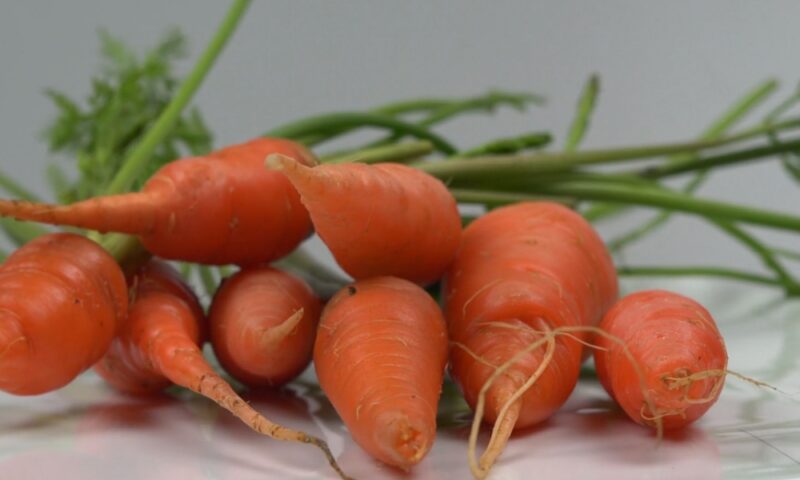
The optimal storage conditions for baby carrots are similar to those for most other fresh produce. They prefer a cool, humid environment. The ideal temperature for storing them is between 32°F and 40°F, which is the typical temperature range of most refrigerators.
This cool temperature slows down the metabolic processes that lead to spoilage, helping to preserve the carrots’ freshness for longer. Humidity is also a crucial factor in preserving the freshness of baby carrots. They thrive in environments with a relative humidity of around 95%.
Most refrigerators are not this humid, so storing your vegetables in the crisper drawer, where humidity levels are higher, can help maintain their freshness. The high humidity prevents the carrots from drying out, which can affect their texture and taste.
It’s also important to store baby carrots away from fruits that emit ethylene gas, such as apples and pears. Ethylene is a natural plant hormone that can accelerate ripening and lead to faster spoilage. By storing your vegetables separately from these fruits, you can help extend their shelf life.
Refrigeration
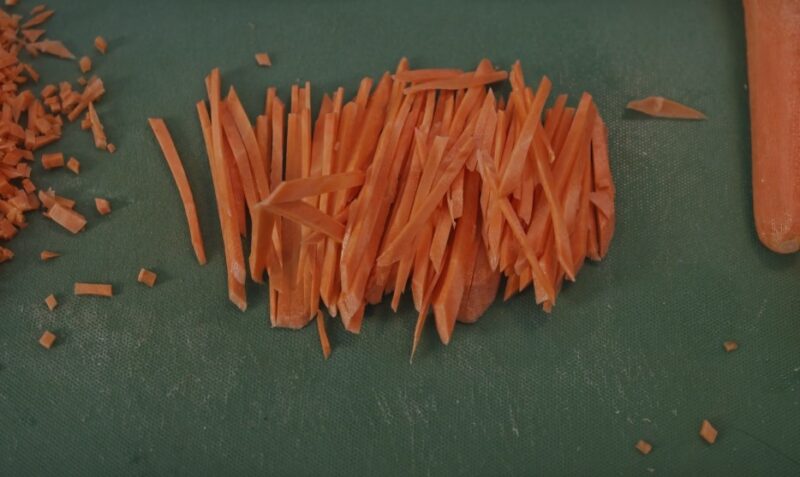
Refrigerating baby carrots has several benefits. It helps maintain their crispness, prevents them from drying out, and slows the growth of bacteria and mold. These factors can significantly extend their shelf life, making refrigeration the preferred storage method for many people.
However, refrigeration is not without its drawbacks. One potential downside of refrigerating baby carrots is that it can cause them to become too moist, leading to the growth of mold. This is especially true if the carrots are stored in a sealed bag or container without any air circulation.
The lack of air flow can create a damp environment that promotes the growth of mold. Therefore, it’s important to ensure that your storage container or bag allows for some air circulation. Another potential issue is that refrigeration can sometimes alter the taste and texture of baby carrots.
Some people find that refrigerated carrots have a slightly different flavor and a less crisp texture compared to those stored at room temperature. This is likely due to the cold temperature slowing down the carrots’ metabolic processes, which can affect their taste and texture.
Despite these potential drawbacks, most experts agree that the benefits of refrigerating baby carrots outweigh the cons. The key is to manage the moisture levels and ensure proper air circulation. By doing so, you can enjoy fresh, crisp for several weeks.
Alternative storage methods
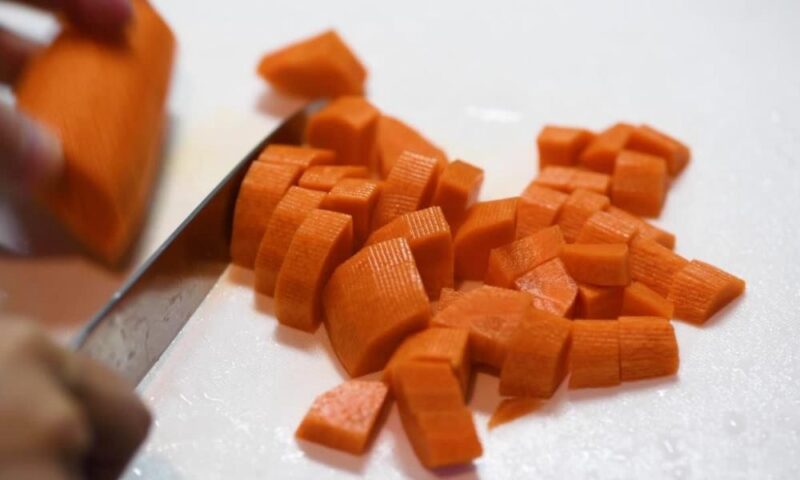
If you don’t have access to a refrigerator or prefer not to use one, there are a few alternative methods for storing baby carrots. One option is to store them in a cool pantry or root cellar. These environments can provide the cool temperatures that baby carrots prefer, although they may not offer the same level of humidity control as a refrigerator.
This means that the carrots may dry out more quickly, affecting their texture and taste. Another alternative is to store the vegetables in breathable containers or bags. These allow for air circulation, which can help prevent the buildup of moisture and the growth of mold.
However, they may not keep the carrots as crisp as a sealed container in the refrigerator. This is because the air circulation can also lead to more rapid moisture loss, causing the carrots to dry out.
Regardless of the method you choose, it’s important to keep baby carrots away from direct sunlight and heat, as these can cause them to spoil more quickly. It’s also crucial to ensure that the storage area is clean and free from contaminants that could spoil the carrots.
Handling and preparation tips
Before storing baby carrots, it’s important to handle and prepare them properly. This includes washing them thoroughly to remove any dirt or bacteria. However, it’s best to wash them just before you plan to eat them, as moisture can lead to faster spoilage.
If you need to wash them before storage, make sure to dry them thoroughly to prevent the growth of mold. If the baby carrots are wet after washing, be sure to dry them thoroughly before storage. You can do this by patting them dry with a clean towel or letting them air dry.
This step is crucial in preventing the growth of mold, which thrives in damp environments. When storing the vegetables, it’s also a good idea to remove any that are damaged or starting to spoil. These can cause the rest of the carrots to spoil more quickly. By removing them, you can help preserve the freshness of the remaining carrots.
Signs of spoilage
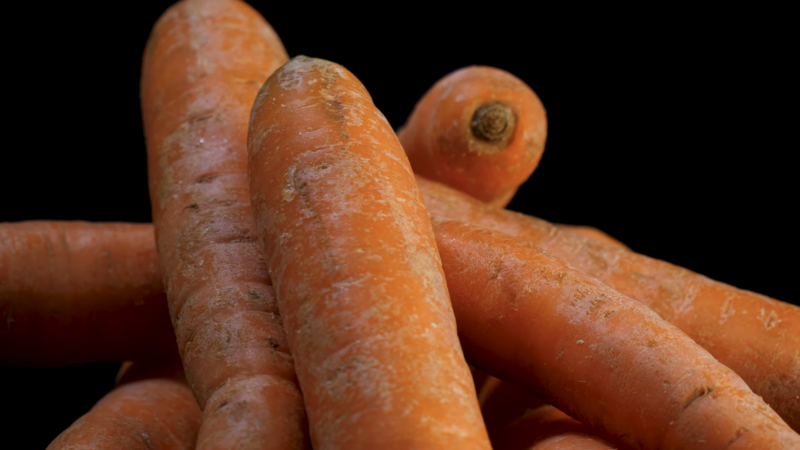
Knowing how to identify spoiled baby carrots is crucial for maintaining food safety. Some common signs of spoilage include a slimy texture, a foul smell, and the presence of mold. These signs indicate that the carrots have started to deteriorate and are no longer safe to eat.
If the baby carrots are slimy or have a strange smell, it’s best to err on the side of caution and discard them. Eating spoiled carrots can lead to foodborne illness, which can cause symptoms like nausea, vomiting, and diarrhea. Therefore, it’s always better to be safe than sorry when it comes to food safety.
Mold can appear as white, green, or black spots on the carrots. If you see any signs of mold, you should discard the entire bag, as mold spores can spread quickly and contaminate other carrots. Even if only a few carrots have visible mold, the rest may still be contaminated with mold spores that are not yet visible to the naked eye.
Commercial packaging considerations
Commercially packaged baby carrots are typically sold in breathable plastic bags that allow for some air circulation. This helps prevent the buildup of moisture and the growth of mold. However, these bags are not completely airtight, so they may not keep the carrots as crisp as a sealed container.
If you prefer your carrots extra crisp, you might want to transfer them to a sealed container after opening the bag. This can help maintain their crispness by preventing moisture loss. However, it’s important to ensure that the container allows for some air circulation to prevent the buildup of moisture.
It’s also worth noting that some baby carrots are sold in bags with a “best by” date. This date is a good guideline for when the carrots are likely to start losing their freshness, but it’s not a hard and fast rule. The actual shelf life of the carrots can vary depending on how they’re stored.
Therefore, it’s always a good idea to check the carrots for signs of spoilage, regardless of the “best by” date.
Recommendations from producers and experts
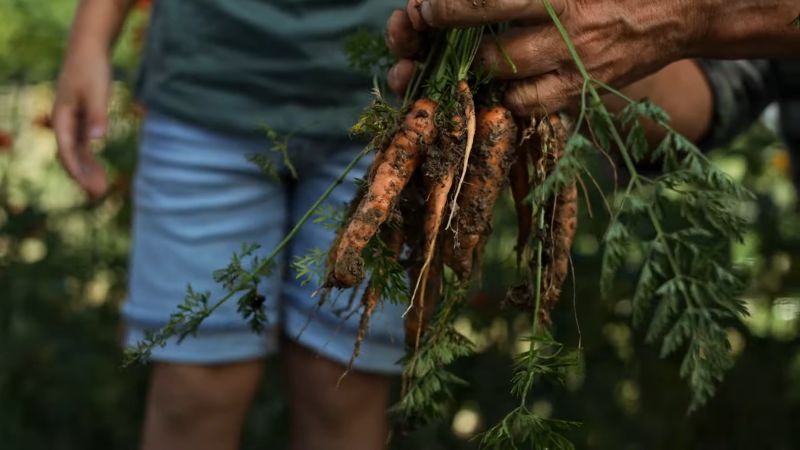
Most carrot growers and distributors recommend refrigerating baby carrots. This is because refrigeration provides the cool, humid environment that they need to stay fresh. The cold temperature slows down the metabolic processes that lead to spoilage, while the high humidity prevents the carrots from drying out.
Similarly, food safety organizations like the U.S. Food and Drug Administration (FDA) also recommend refrigerating baby carrots. According to the FDA, perishable foods like baby carrots should be refrigerated within two hours of purchase to prevent the growth of harmful bacteria.
This is especially important for baby carrots, which are peeled and therefore more susceptible to bacterial contamination. However, these recommendations are not one-size-fits-all. Depending on your specific circumstances and preferences, you might find that other storage methods work better for you.
For example, if you live in a cool climate, you might prefer to store your baby carrots in a cool pantry or root cellar. Or, if you prefer your carrots a bit less crisp, you might choose to store them in a breathable bag. The key is to find a storage method that maintains the carrots’ freshness while also suiting your personal preferences.
Consumer experiences and preferences
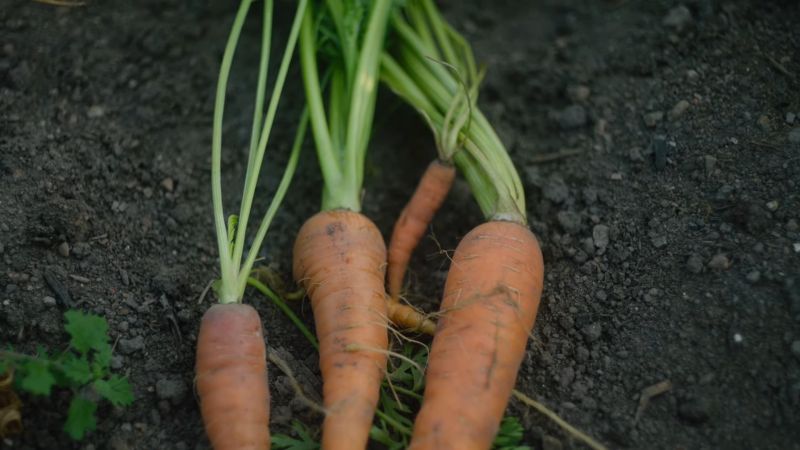
Consumer experiences and preferences when it comes to storing baby carrots can vary widely. Some people swear by refrigeration, while others prefer to store their carrots at room temperature. These differences in preferences can be influenced by a variety of factors, including personal taste, storage space, and local climate.
In a survey conducted by the National Carrot Growers Association, the majority of respondents reported that they refrigerate their baby carrots. However, a significant minority said they store their carrots in a cool pantry or root cellar.
This suggests that while refrigeration is the most common storage method, it’s not the only viable option. These varied perspectives highlight the fact that there’s no one “right” way to store baby carrots.
What matters most is finding a method that works for you and helps maintain the freshness and quality of your carrots.
FAQs:
What is the white film sometimes seen on refrigerated baby carrots?
The white film is called “white blush,” and it’s caused by the carrots drying out. It’s harmless and does not affect their taste or safety.
Can I revive wilted vegetables?
Wilted vegetables can often be revived by soaking them in ice water for a few minutes.
Can I eat them after the “best by” date on the package?
The “best by” date is a guideline for peak quality, but the actual shelf life of vegetables can vary depending on how they’re stored. Always check for signs of spoilage before eating.
Is it possible to freeze the vegetables?
Yes, baby carrots can be frozen, but they should be blanched first to preserve their texture and flavor.
Can I eat baby carrots that have been left out overnight?
It’s best to avoid eating vegetables that have been left out at room temperature for more than two hours, as this can increase the risk of foodborne illness.
Conclusion
To sum up, while baby carrots can technically be stored without refrigeration, most experts and consumers agree that they stay fresher and crisper when kept in the fridge. However, it’s important to manage moisture levels and ensure proper air circulation to prevent the growth of mold.
By doing so, you can enjoy fresh, crisp baby carrots for several weeks. Whether you choose to refrigerate your baby carrots or use an alternative storage method, remember to handle them properly, watch out for signs of spoilage, and enjoy them while they’re fresh.
After all, the best way to enjoy them is when they’re at their peak of freshness and flavor. –

